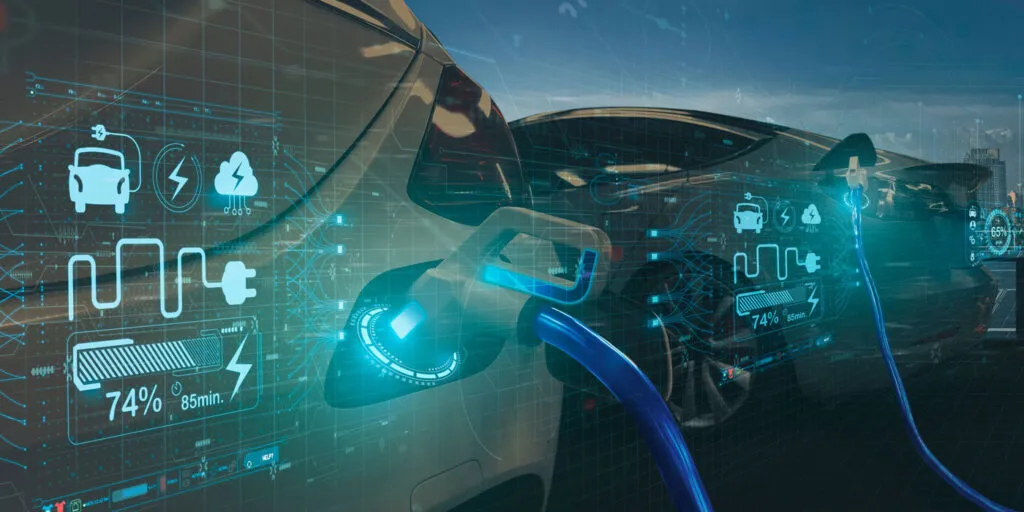
Recent Advancements The electric vehicle (EV) industry has undergone significant transformations over the past decade, driven by advancements in technology, evolving market dynamics, and increasing environmental awareness. As electric vehicles become more mainstream, it’s crucial to understand the latest technological advancements, the current challenges facing the industry, and what the future holds for this rapidly evolving sector. This article explores these aspects in detail, providing a comprehensive overview of the state of electric vehicle technology and its trajectory. Remote Work
Recent Advancements in Electric Vehicle Technology
Electric vehicle technology has made remarkable strides, enhancing performance, efficiency, and accessibility. Recent advancements have played a pivotal role in accelerating the adoption of EVs and improving their viability as a sustainable transportation solution.
- Battery Technology Improvements: One of the most significant advancements in EV technology is the development of advanced battery technologies. Recent innovations include solid-state batteries, which offer higher energy density, faster charging times, and improved safety compared to traditional lithium-ion batteries. Companies like QuantumScape are at the forefront of this technology, promising to revolutionize battery performance in the near future.
- Enhanced Charging Infrastructure: The expansion of charging infrastructure has been crucial in supporting the growth of electric vehicles. High-speed charging stations, such as those developed by Tesla’s Supercharger network and other providers, have significantly reduced charging times, making long-distance travel more feasible for EV owners. Additionally, advancements in wireless charging technology are set to further enhance convenience by allowing for charging without physical connectors.
- Vehicle-to-Grid (V2G) Technology: Vehicle-to-Grid technology is an emerging innovation that allows electric vehicles to interact with the power grid. By enabling EVs to store and return electricity to the grid, V2G technology helps balance energy supply and demand, supports renewable energy integration, and provides additional revenue streams for EV owners. Companies like Nissan are exploring V2G capabilities in their electric vehicle models.
- Autonomous Driving Capabilities: The integration of autonomous driving technologies into electric vehicles is another notable advancement. Companies like Tesla and Waymo are leading the charge in developing self-driving capabilities, which aim to enhance safety, reduce traffic congestion, and offer a more convenient driving experience. The convergence of EV and autonomous technologies represents a significant leap towards the future of transportation.
Current Challenges in the Electric Vehicle Industry
Despite the progress made, the electric vehicle industry faces several challenges that need to be addressed to ensure sustainable growth and widespread adoption. Understanding these challenges is crucial for overcoming barriers and advancing the industry.
- High Manufacturing Costs: The cost of manufacturing electric vehicles remains a significant barrier to widespread adoption. Although battery costs have decreased over the years, they still constitute a substantial portion of the overall vehicle cost. Automakers are working to reduce production costs through economies of scale, technological improvements, and innovations in battery manufacturing processes.
- Charging Infrastructure Gaps: While charging infrastructure has improved, there are still gaps in coverage, particularly in rural and underserved areas. Expanding the network of charging stations and addressing range anxiety—concerns about running out of battery power—are essential for increasing consumer confidence and encouraging EV adoption.
- Raw Material Supply Chain Issues: The supply chain for raw materials used in batteries, such as lithium, cobalt, and nickel, poses challenges for the electric vehicle industry. Issues related to resource availability, ethical sourcing, and environmental impact need to be addressed to ensure a stable and sustainable supply of materials Recent Advancements.
- Battery Recycling and Disposal: As the number of electric vehicles on the road increases, managing the lifecycle of batteries becomes increasingly important. Effective recycling and disposal methods are needed to handle the large volumes of spent batteries and minimize their environmental impact. Research into more sustainable battery technologies and recycling processes is ongoing.
Future Developments in Electric Vehicle Technology
Looking ahead, several key developments are expected to shape the future of electric vehicle technology and drive further advancements in the industry.
- Breakthroughs in Battery Technology: Future developments in battery technology are likely to focus on increasing energy density, reducing costs, and improving sustainability. Innovations such as solid-state batteries, lithium-sulfur batteries, and advancements in recycling methods will play a crucial role in enhancing EV performance and affordability Recent Advancements.
- Expansion of Charging Solutions: The future will see continued expansion of charging infrastructure, including the deployment of ultra-fast charging stations and widespread adoption of wireless charging technologies. Additionally, innovations in smart grid integration and charging management will contribute to a more efficient and accessible charging network.
- Integration of Renewable Energy: The integration of renewable energy sources, such as solar and wind, with electric vehicle charging infrastructure will be a key development. By powering EVs with clean energy, the environmental benefits of electric vehicles will be further enhanced, supporting global sustainability goals.
- Enhanced Autonomous Capabilities: The evolution of autonomous driving technology will continue, with advancements in artificial intelligence, machine learning, and sensor technologies. Future electric vehicles are expected to feature more advanced self-driving capabilities, offering improved safety and convenience for users.
- Emergence of New Mobility Solutions: The future of electric vehicles may also include new mobility solutions, such as electric ride-sharing services, autonomous electric shuttles, and urban air mobility. These innovations have the potential to transform transportation systems and contribute to more sustainable and efficient urban environments Recent Advancements.
Conclusion
Recent advancements in electric vehicle technology, coupled with the challenges faced by the industry, highlight the dynamic nature of this rapidly evolving sector. As the industry continues to innovate and address existing issues, the future of electric vehicles promises to bring transformative changes to transportation, sustainability, and technology. By embracing these developments and overcoming challenges, the electric vehicle industry can pave the way for a cleaner, more efficient, and connected future.
